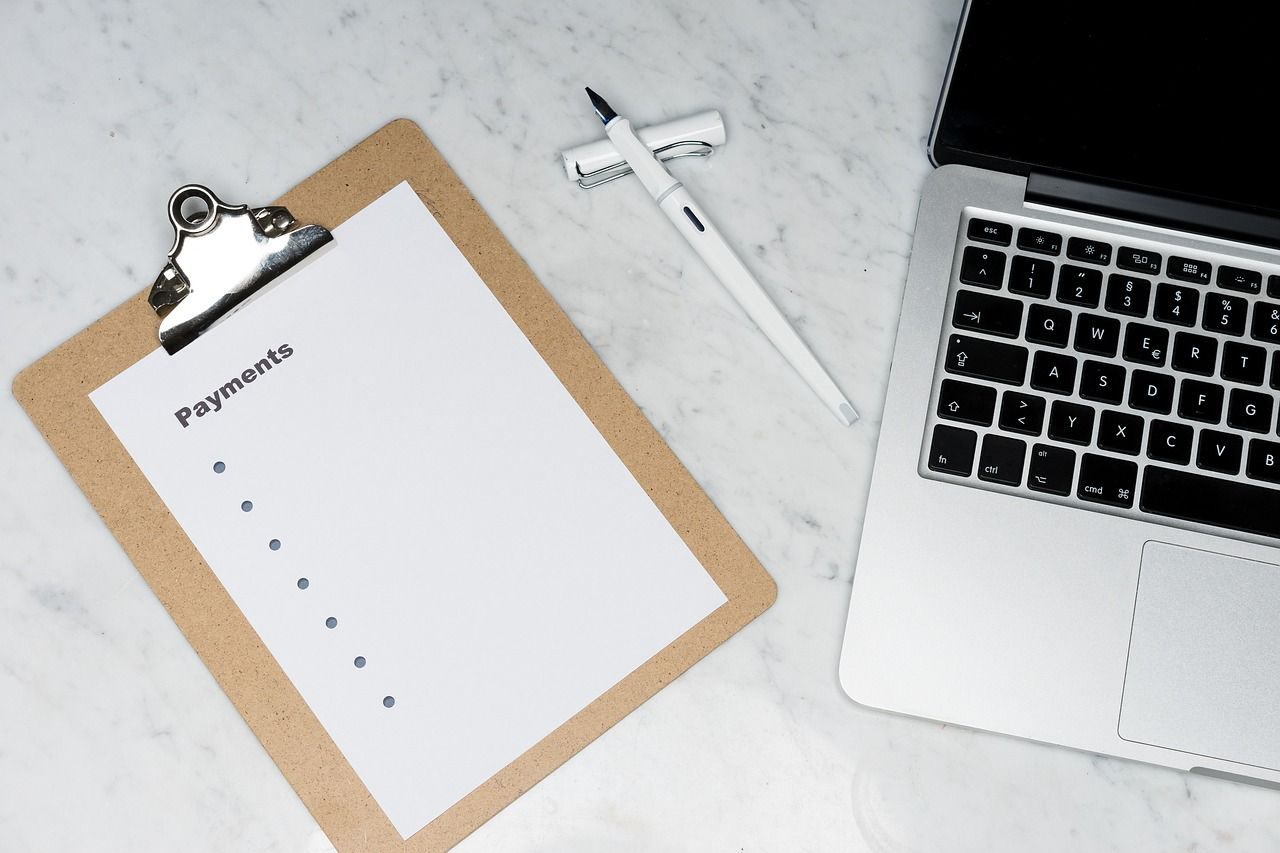What Is a Barangay Permit
You’ll need a barangay permit to open a sari-sari store, start a food delivery service or run an online business from home. It is also known as barangay business clearance.
A Barangay permit confirms that your business is allowed to operate in the area and has met the community's basic requirements. Think of it as your first step toward building trust in your neighborhood and staying on the right side of local regulations.
Its biggest advantage lies in how simple and quick the process can be. Your barangay officials know small business well. This is different from the mountain of paperwork you'll encounter with other government agencies. Your barangay permit isn't just permission to operate, it's your community's way of saying: "We believe in what you're doing".
What Is a Mayor's (Business) Permit and How It Differs
What is the main difference between the Barangay Permit and the Mayor’s Business Permit? The latter allows you to operate at the city or municipal level. You'll need to get your barangay clearance first, then use it as part of your application for the Mayor's permit. Running your business that way usually requires more steps. This means paying city taxes and passing inspections. Both are necessary to stay compliant.
Many first-time business owners overlook this: these permits fit together like building blocks. Your barangay clearance proves you're good with your immediate neighbors. Your Mayor's permit proves you're ready to play in the bigger city arena. Skip either one, and you're building on shaky ground.
The Mayor's permit usually costs more. It also needs extra documents, like fire safety clearances and health certificates, based on your type of business.
But don't let that intimidate you. Every successful business owner in your city has walked this same path.
Step‑by‑Step: How to Apply for a Barangay Permit
Step 1: Prepare Yourself Mentally and Physically
Go to your barangay hall and bring a valid ID introducing your business idea. It's best to dress decently and be ready to answer basic questions about what you plan to do. Remember, first impressions matter. You're not just applying for a permit; rather, you’re stepping into the heart of local business in the Philippines. With this, you join thousands of Filipinos fueling the country’s economy.
Step 2: Complete the Application
Some barangays have their own barangay business permit blank, but most follow a standard template. Put real care into filling out the form. Accuracy here saves you trips back later.
Step 3: Document Submission
Submit the required documents (detailed below). Double-check everything twice. Missing documents are the number one reason for delays.
Step 4: Fee Payment
Pay the clearance fee. Costs vary, but are usually affordable.
Step 5: Processing and Approval
Now you just need to wait for approval. Many barangays issue the barangay clearance for business the same day or within a few days. Some progressive barangays even have same-day processing if you submit early in the morning.
Once approved, you'll receive your barangay permit for business, signed and sealed.
Required Documents
Barangay permit requirements may vary slightly by location, but typically include:
Essential Documents:
- Valid government-issued ID (driver's license, passport or national ID)
- Proof of address (a contract or barangay certificate of residency)
- Detailed description of your business activity
- DTI Certificate (for sole proprietors) or SEC registration (for corporations)
- Community Tax Certificate (CTC or Cedula)
Additional Requirements (Depending on Business Type):
- Sanitary permit for food-related businesses
- Fire safety inspection certificate for establishments with significant foot traffic
- Environmental compliance certificate for businesses that might impact the environment
- Professional licenses if your business requires specific expertise
Pro tip: Always bring both original documents and photocopies. Some barangays keep copies for their records, while others just need to verify against originals.
It's a good idea to visit their Facebook page to double-check their list.
Terms
About the organization
Terms
About the organization
Terms
About the organization
Terms
About the organization
Fees, Timelines, and Renewal Deadlines
Cost Breakdown: Fees range from 200PHP to 1.000PHP based on what kind of business you're running and how big it is. Home-based businesses usually pay less (typically 200-500PHP), while those with higher foot traffic or risk (like retail stores) may pay more (500-1.000PHP).
Timeline Expectations: Most barangays process permits within 1-3 business days if all requirements are complete. Progressive barangays in Metro Manila and other urban areas often offer same-day processing. Rural areas might take up to a week, but they're usually more flexible with requirements.
Renewal Requirements: Barangay clearances for business are typically valid for one calendar year and must be renewed annually. It would be a good idea for you to mark the date. Staying on time just helps things flow more smoothly.
Common Pitfalls and How to Avoid Them
Document-Related Issues:
- Missing documents: always bring photocopies and originals
- Expired IDs or certificates: it's worth checking the dates before you leave the house. No one wants to spend half a day in traffic, only to come back and do it all over again
- Unclear business description: be as clear and specific as possible, when describing what you do. A simple, transparent explanation helps the barangay staff understand your business and process your permit faster
Payment Problems:
- Unpaid community tax certificate: this small detail is often forgotten, but is required in most barangays
- Insufficient cash: many barangays don't accept cards or online payments yet
Assumption Errors:
- Thinking online businesses are exempt: physical location still matters for permits
- Believing you can operate while "waiting" for approval: start the process before you start operating
Online vs. In Person Applications: What's Available
Some progressive barangays, especially in Metro Manila, have begun offering online application options. These typically allow you to submit forms and pay fees through local government portals or apps. Cities like Taguig, Makati, and Quezon City have digital systems that can cut processing time significantly.
However, many barangays still prefer face-to-face interaction, and honestly, this isn't always a bad thing. When you apply in person, you can build relationships with the people who are processing your documents. You can also clarify requirements immediately.
If you have a lot of questions and you doubt, don't even think about it, go in person. It's often faster especially for first-time applicants who might need guidance through the process.
Exemptions and Special Cases
Certain micro-businesses or low-impact home operations (like tutoring, online freelancing, or consultancy services) may be exempt in some areas. However, these rules vary significantly from one barangay to another. Always try to check all the details with your local barangay office.
Some groups may have unique requirements when applying for a barangay clearance:
- Renters (can apply by showing rental agreement or utility bill as proof of address)
- Temporary residents (should check with the barangay for specific local requirements)
- Individuals with legal issue (may face additional steps if they have pending cases)
- Minors (must apply with a parent or legal guardian and provide supporting documents)
- Youth-led startup (reduced requirements)
Also, if your business is part of a larger franchise, your head office may handle permits centrally. We advise you to verify the details with both your franchisor and your local barangay.
How Much Is Barangay Business Permit
If you're wondering how to get a barangay business permit, don't worry because it's actually one of the most affordable parts of business registration. You can typically get it for under 1.000PHP and in many cases, even less. Most home-based businesses pay between 200 - 500PHP, while small retail operations might pay 500 - 2.000PHP.
Compare this to the potential fines for operating without a permit (which can range from 5.000PHP to 50.000PHP depending on your location in the Philippines). And the choice becomes obvious. Just be sure to renew it yearly and keep your paperwork in order.
Building Your Business Foundation
Getting your barangay permit for business is just the beginning. Now that you have it, you can move on to the next steps: apply for the Mayor's permit, register with BIR, enroll employees in SSS and PhilHealth, and consider any industry-specific licenses.
One thing that makes the barangay permit special is that it's proof you've started. Every time you look at it, remember that someone believed in your business idea enough to give you official permission to pursue it. That's not nothing. That's everything.
Final Thoughts
Getting your barangay permit for small business it's your way of saying, "I'm serious about doing this right." It helps you earn trust, build your reputation, and prepare your business for bigger things.
Beyond compliance, this paper is your official welcome into the business community. It opens doors to bank loans and partnership opportunities. These options would be closed to informal operators otherwise. Start small, start legal, and take your first real step into doing business in the Philippines with the right papers from day one.
SEO description: Starting a small business in 2025? We explain barangay permit requirements, forms, and how to get barangay business clearance.

